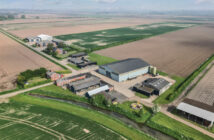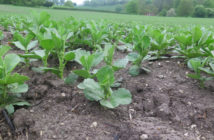Plans for a consultation with industry over the possible introduction of a Digital Passport for Combinable Crops have been confirmed by the project’s Leadership Group to take place during autumn 2023.
Digitising paper passports to improve food and feed safety data communication, through supply chains, has been discussed for more than a decade. Over the last year a much-simplified version of previous proposals has been developed, which will now be consulted on.
Representatives from all parts of the cereals and oilseeds chain have been working together to create a business case. This includes:
Merchants and animal feed business – represented by the Agricultural and Industries Confederation (AIC)
Farmers – represented by the National Farmers Union (NFU) and NFU Scotland
Receivers – represented by UK Flour Millers, the Maltsters Association and Seed Crushers and Oilseed Processors.
The group has been supported by experts at the Agriculture and Horticulture Development Board (AHDB).
To inform the development of the business case, advice has been taken from a very broad range of interested parties including hauliers, port facility operators and businesses outside the membership of the organisations represented on the Leadership Group.
The business case sets out how a Digital Passport (Combinable Crops) system could operate, replicating the purpose of the existing paper passport. The electronic documentation will, as now, be initiated by farmers with input from hauliers before onward transmission to receivers.
There will be live updates of assurance status prior to the vehicle leaving farms, avoiding the risk of delay or rejection at the receiver’s site. The system will be built with sufficient resilience and back-ups to avoid any undue downtime or faults.
The system will enable a multi-directional flow of data between farmers, grain merchants and end users such as millers, maltsters and feed mills. This includes a commitment to the real-time return of information to those involved in the contractual chain.
All involved are very much aware of the need to ensure ease of use, as well as minimise costs and maximise accessibility. There has therefore been active exploration of the potential for existing software and off-the-peg systems to be adapted to the grain sector’s needs along with a more bespoke approach.
The business case will be published in early October detailing the purpose, benefits and costs. It will also consider how data will be governed, how real-time information will flow and to who, how data will be secured, as well as ownership and funding. The purpose of the consultation is to ensure industry needs are addressed, highlight gaps in the business case and to establish the level of support for the project.
If the majority confirm the proposal is supported, and considering feedback on the business case, the Leadership Group would approach the AHDB Cereals and Oilseeds Sector Council to discuss funding options. Additional funding would be investigated from all available sources to keep costs as low as possible to direct passport users.
To engage with the consultation process, please contact your representative at the respective trade association or contact AHDB via David.Eudall@ahdb.org.uk to receive an update.




